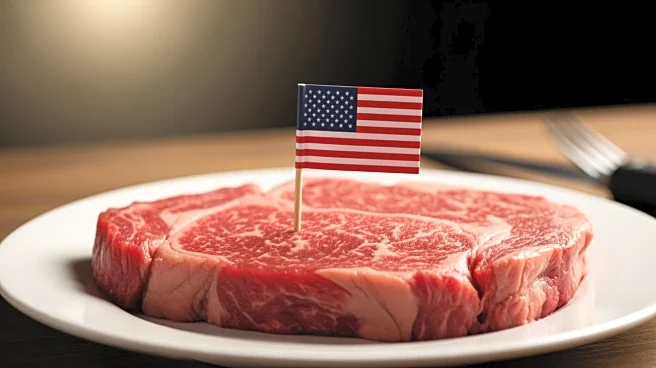What's Happening?
The beef industry has responded critically to President Trump's plan to increase beef imports from Argentina, aimed at reducing U.S. beef prices. Industry leaders, including the National Cattlemen's Beef
Association (NCBA), argue that the move could harm U.S. cattle producers and disrupt market stability. The NCBA highlights the trade imbalance with Argentina and raises concerns about the safety of imported beef due to Argentina's history of foot-and-mouth disease. The American Farm Bureau Federation and other industry groups have expressed similar concerns, emphasizing the potential negative impact on U.S. cattle farmers and the risk of increased reliance on foreign beef. The Iowa Cattlemen’s Association has also criticized the administration's approach, warning of the potential harm to U.S. producers and market volatility.
Why It's Important?
The beef industry's pushback against President Trump's import plan underscores the complex challenges facing U.S. agriculture policy. Increasing Argentine imports may not significantly affect consumer prices but could destabilize the domestic cattle market and harm U.S. producers. The decision raises questions about trade policy, food safety, and the balance between consumer interests and industry sustainability. Industry leaders are concerned about the long-term implications for U.S. cattle farmers, who are already facing economic pressures from droughts and low prices. The situation highlights the need for careful consideration of trade policies and their impact on domestic agriculture.
Beyond the Headlines
The debate over beef imports from Argentina reflects broader issues in U.S. agriculture policy, including the role of tariffs and international trade in shaping domestic markets. The industry's response highlights the importance of supporting U.S. producers while ensuring consumer access to affordable food. The situation may prompt discussions on regulatory measures to protect domestic agriculture and address trade imbalances. Additionally, the controversy underscores the need for transparency and scientific backing in policy decisions affecting the agriculture sector.









